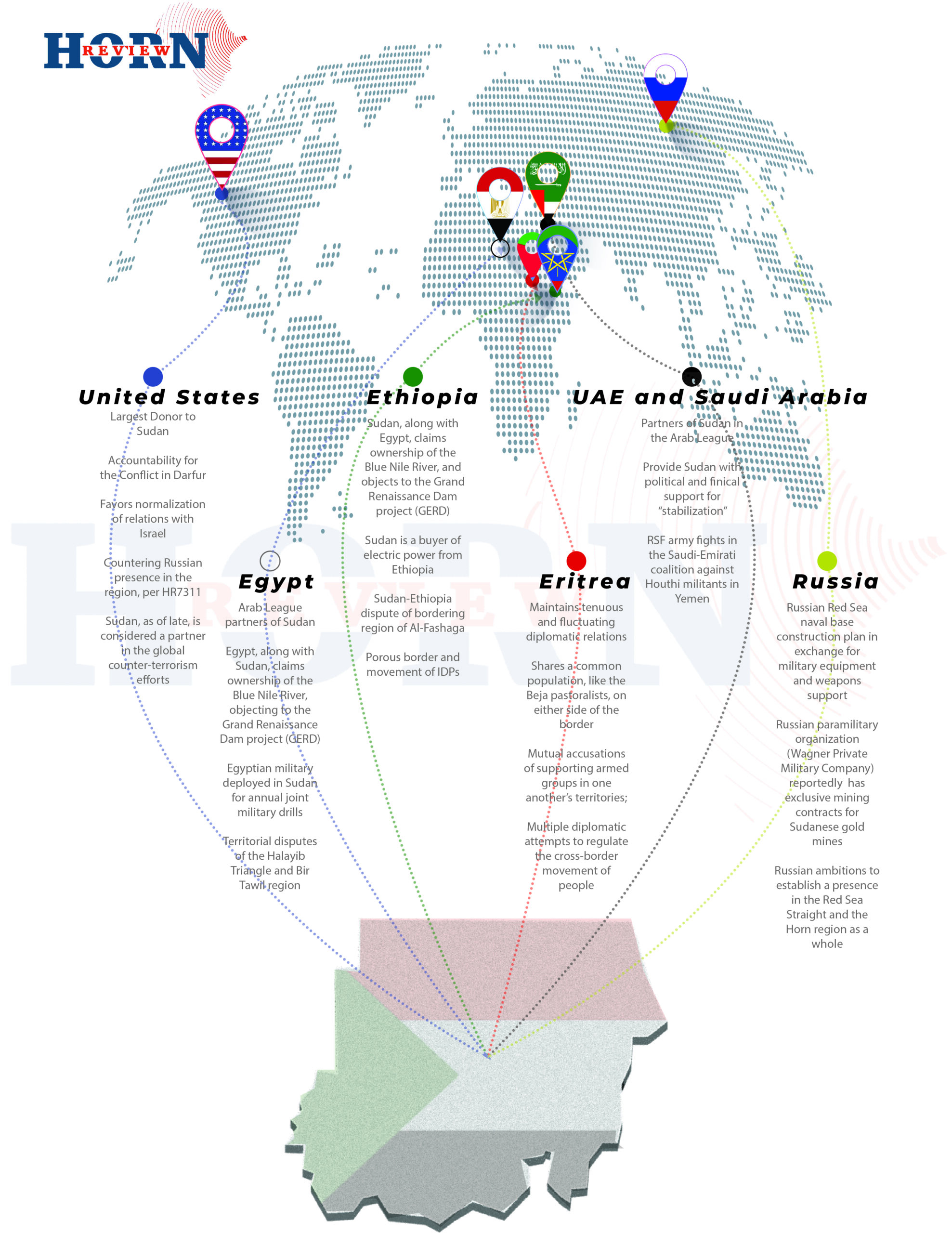
A Humanitarian Lifeline for Sudan’s Population: A Possible Ethiopian Role
With a full-scale war being fought in urban centers, foreign states swiftly evacuating their nationals, depletion of food and basic necessities in conflict zones, and no apparent pathways for a return to peaceful political resolution, the humanitarian crisis in Sudan is progressively worsening with each passing day. A multitude of factors further heightens the complexity of this conflict: the multiplicity of external actors and interests, the direct involvement of neighbors like Eritrea and Egypt- and others in the Gulf Region- and the internationalization of the conflict among global actors like the US and Russia. These factors further weaken the role and position of regional actors and mechanisms like Ethiopia, the AU, and IGAD to spearhead diplomatic options for the political resolution of the conflict as they have in the past.
However, Ethiopia is the best-suited country in the region to play a decisive role if not in the political de-escalation between the military factions, and the amelioration of human conditions, particularly in mitigating the human toll as a result of the conflict. Tens of thousands of refugees have already fled the conflict via Chad, Egypt, Ethiopia, and Saudi Arabia; the latter via Port Sudan. Neighboring countries and humanitarian organizations are struggling to match the pace and urgency of the mounting humanitarian needs.
The route from Khartoum to Metemma is arguably the safest and most direct route to safety from the capital – given that the majority of this route is under the control of the Sudanese Armed Forces (SAF) -particularly the route stretching from Gedaref to Metemma.
As a nation with a past mediatory role and close acquaintance with both parties to the conflict: Abdel Fattah al-Burhan and Mohamed Hamdan Dagalo (Hemmeti), Ethiopia is best positioned to be an interlocutor to facilitate humanitarian assistance. It is therefore essential for Ethiopia to consider forwarding itself as a principal country of asylum for Sudanese civilians fleeing the conflict and consider convening international partners to formulate a coordination mechanism to facilitate refugee reception and welfare measures.
This option might include:
-
- Establishment of a temporary reception center at Metemma with accommodation and essential care and services for arrivals;
- Application of expedited entry procedures for genuine asylum seekers;
- Coordination with the ICRC, UN, and both the SAF and the RSF leaderships to facilitate the movement of humanitarian convoys traveling between Khartoum and Mettema, and Metemma and Gedaref;
- Possible coordination with SAF to ensure security along the Gedaref-Metemma route.
Ethiopia is undoubtedly one of the countries to be directly and indirectly affected by the conflict; as it maintains the convening power within IGAD and the AU, Addis Ababa is therefore well positioned to promote, facilitate, and host multilateral diplomatic initiatives with the principal aim of aiding the Sudanese people and preventing a humanitarian calamity from unfolding.